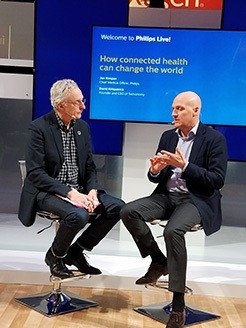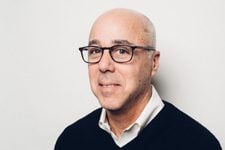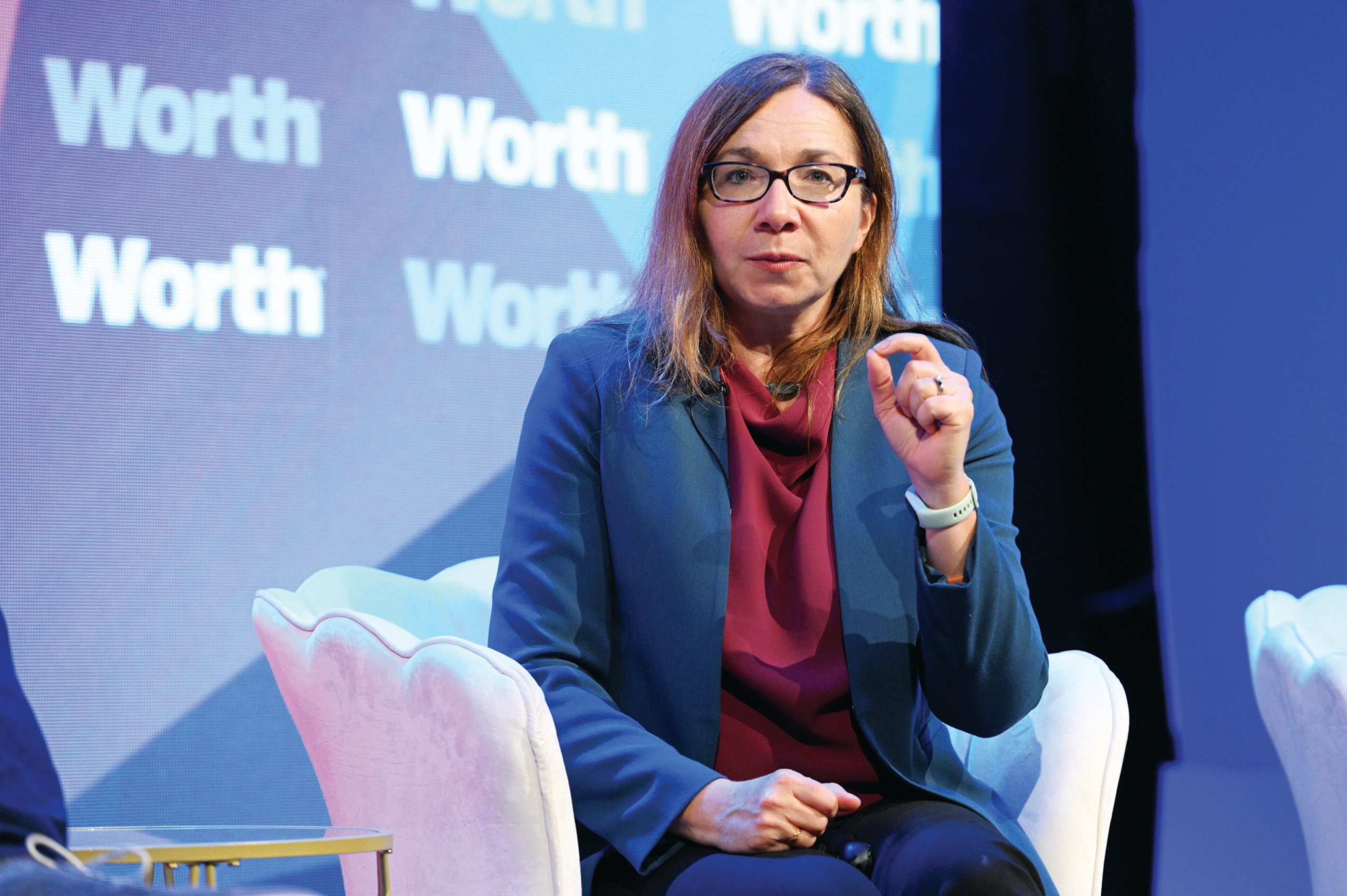
The digital transformation of healthcare is going to depend on data portability and all the issues that surround it — technical, logistical, and ethical.
This week’s Healthcare Information and Management Systems Society (HIMSS) conference brought more than 40,000 health information technology professionals to Las Vegas along with 1,355 exhibiting companies. While there was a wide array of devices and services on display, data was the unifying theme — how to collect it, where to store it, how to share it, how to protect it, and how to make it actionable.
The industry frames its ongoing transformation as moving from sick care to well care, from hospital care to remote care, and from periodic care to ongoing care; but the driver of all this hoped-for change will be data. Connected devices are creating untold amounts of data in the hospital, at the family doctor’s, and in the home — making hospitals, device makers, and physicians something akin to systems integrators that must access, interpret, and share data.
The industry’s rapid technological advancements raise a host of issues around patient rights, and the patient’s relationship with caregivers will be transformed, said Frans van Houten, CEO of healthcare product and services company Philips.
“People need to be more accountable for their own health, and data is the feedback,” van Houten said in an interview on the eve of the conference. “When you leave the hospital, you should take your data with you.”
The vision raises technical issues regarding security and interoperability as well as cultural concerns, particularly around who controls how the data is used, and by whom.
“We don’t need to own the data in order to learn from the data,” van Houten said.
Still, there are conflicting forces at hand. For example, keeping data secure, seemingly a virtue in itself, could in some ways actually impede keeping patients healthy.
Ed de Myttenaere, CIO of Northwest Clinics in the Netherlands, cited the European Union’s General Data Protection Regulation (GDPR) as a case in point. The regulation will harmonize existing data protection laws in the European Union and strengthen the rights of people in the EU to control their personal data. Companies that do not comply risk severe fines. But the rules, he said, will hinder the development of telemedicine in Europe and drive fragmentation by making it more complex for hospitals, pharmacies, and primary care physicians to share data.
In the United States, hospital CIOs are still thinking through what the shift to data-driven healthcare means. David Higginson, CIO of Phoenix Children’s Hospital, called data “the third age of the hospital CIO.”
“We spend a lot of time capturing data,” he said. “We believe that a continuous data stream will give us a lot more insight into what’s going on.” Still, he said, there are a lot of unknowns. “I’m nervous and a little skeptical.”
Higginson and many of his peers are turning to outside companies to manage the data rather than building up their own teams of analysts.
For its part, Philips manages 170 petabytes of data, van Houten said. Once a diversified electronics company, it is now fully focused on healthcare. Even more specifically, he says “we are a data company.”.

That thought was echoed by Dr. Purna Prasad, Chief Technology Officer of Northwell Health, a completely different kind of organization. It’s a not-for-profit healthcare network of 22 hospitals. “We are a tech company offering health services,” he said. Dr. Prasad explains that the ongoing monitoring of patients combined with predictive analytics will allow hospitals to “catch a patient before the patient becomes a real patient.” This idea that future medicine will keep people healthy rather than treat them once they become sick was something like a holy grail at HIMSS.
Jeroen Tas, who pioneered online banking at Citibank and is now Chief Innovation and Strategy Officer at Philips, goes even farther: “The hospital should become the place for specialized or acute care,” he said. “It should just be one hub on the network.”
While the concept is expansive, the reality is that healthcare technology is still fragmented, doctors are slow to embrace it, security issues continue to create significant risk, and financial incentives work against interoperability. In an interview with Techonomy CEO David Kirkpatrick, Philips Chief Medical Officer Jan Kimpen cited examples where remote medicine was increasing access to healthcare for the underserved, but he acknowledged that there was still a long way to go.
“We are collecting so much data that we cannot use yet,” Kimpen said. (View a video of the full interview here.)
That said, even the skeptical are betting that data-driven health will be transformative. “We have massive amounts of imaging data,” Higginson said. “We don’t know what we are going to do with it yet, but we know it will help children.”
—————————————————————————————————–
Editor’s note: Our coverage of HIMSS is sponsored by Philips
Healthcare’s Next Wave: Follow the Data
There was a wide array of devices and services on display at this week's HIMSS conference in Las Vegas but data was the unifying theme — how to collect it, where to store it, how to share it, how to protect it, and how to make it actionable. The vision is expansive; the reality is fraught with challenges.

Techonomy CEO David Kirkpatrick and Chief Medical Officer of Philips Jan Kimpen during their interview onstage at HIMSS 2018. (Photo: Jeff Pundyk)On the show floor at HIMSS. Photo: Jeff Pundyk






